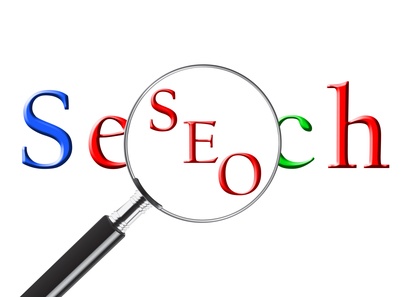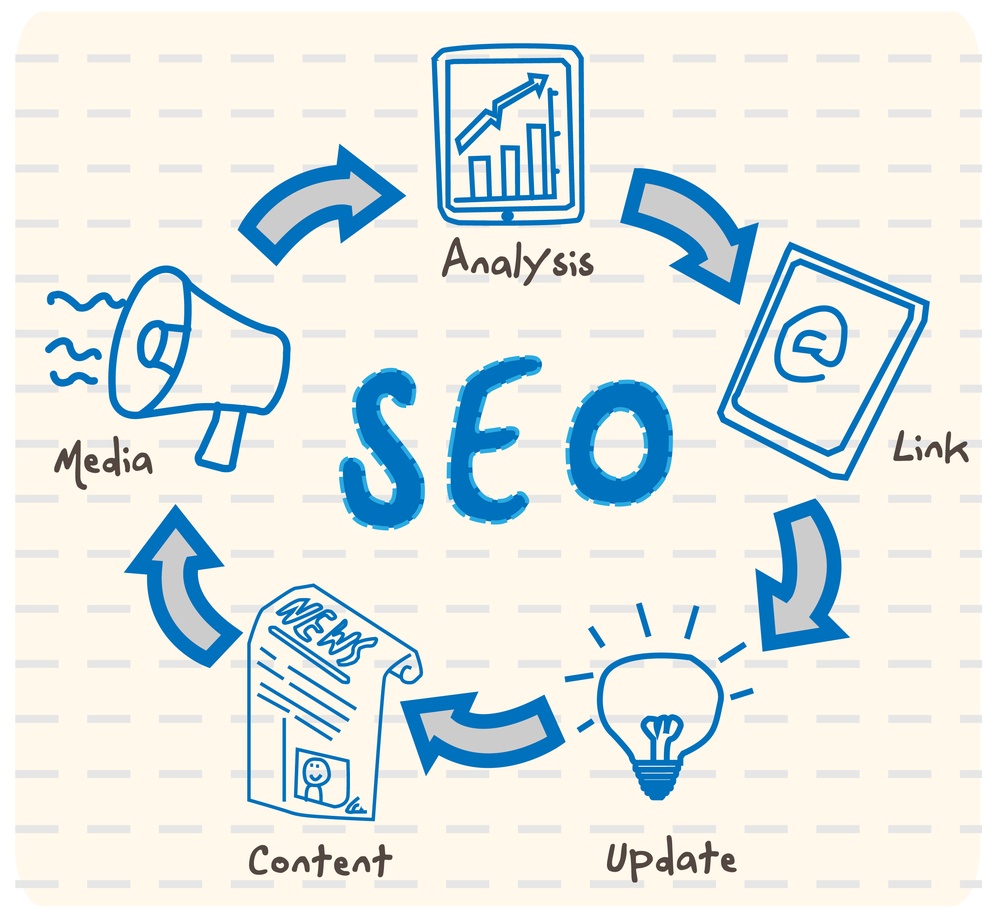Affordable SEO Service Versus Cheap SEO
By Jaco Grobbelaar on Wed, Feb 03, 2016 @ 09:30 AM

 Every marketer wants to save money. And every small business owner functioning as their own marketer really wants to save money! While saving money on your marketing efforts is a good thing (a great thing really!) going for the cheap SEO services instead of an affordable SEO service can turn out to be an expensive option.
Every marketer wants to save money. And every small business owner functioning as their own marketer really wants to save money! While saving money on your marketing efforts is a good thing (a great thing really!) going for the cheap SEO services instead of an affordable SEO service can turn out to be an expensive option.
Why Cheap SEO Can Be Costly
Far too many businesses relegate effective SEO strategies to simply a function that can be knocked out with a few keystrokes and a bit of keyword magic. Either because of a lack of understanding, or a lack of appreciation for the value and complexity of effective SEO strategy, they tend to opt for cheap offers of SEO services.
But they are buying a mirage.
According to Gregory Smith, founder at Search Simplicity,
"...the truth is, there’s no such thing as a cheap SEO plan. There are those who are very desperate, and they offer SEO services, as well as link building services, at a low rate, but if you’ve been doing business for any amount of time, you have hopefully come to learn that, you get what YOU pay for."
Yes, there are options out there that promise great results for small fees. But the reality is in the actual results. The idea is that you are "buying" quality search results that provide a significant percentage of leads that eventually become paying customers. And if you aren't getting those search results from your "cheap" SEO service, then you are losing money.
Plain and simple.
So what do you want to look for in an "affordable" SEO service?
Four Tips for an Affordable SEO Service Strategy
First you need to know where you want to start. If we were to view the marketing realm from, say, a 30,000 foot vantage point we would see that there are essentially two approaches: the more traditional "outbound" marketing approach and the more recent "inbound" marketing.
Outbound marketing can be effective still. Even on the Internet. However, because it typically involves paying for advertising, space, time, etc. it is rarely considered "affordable". And, many would argue, it pits your business head-to-head with every other business fighting for attention on the Internet space. The reality of outbound marketing is that,more often than not, those with the biggest budgets win.
So, what is inbound marketing anyway? Unfortunately, it is still a somewhat fuzzy concept to many business owners and even a few marketers. For a great synopsis we can look to Brian Halligan, CEO of HubSpot, the company that coined the term "inbound marketing". He once defined it this way:
Inbound Marketing is the opposite of traditional outbound marketing (advertising, direct mail/phone, tradeshows, etc.), where you interrupt your way into your people's lives. Instead of interrupting, Inbound Marketing pulls prospects into and down through your sales funnel in a new and natural way based on how they search for information and make purchase decisions today.
Another way to look at the difference between inbound marketing and the classic outbound approach is to see inbound as simply a new approach to Promotion.
Outbound promotion is usually comprised of print and broadcast advertising, publicity and public relations, and other types of sales promotion marketers use to provide information about their product. . And it usually means trying to interrupt your audience from whatever they happen to be reading or watching in order to get their attention.
An inbound marketing strategy, on the other hand, takes a bit of an indirect approach to capturing the attention of your prospects. By providing great content that helps to solve their problems and answer their questions, the inbound marketing approach "promotes" your product or service by drawing your visitors to your website.
What should you consider when developing an affordable Internet marketing strategy?
1. Use an inbound marketing approach
Inbound marketing can be far cheaper and more effective in comparison to outbound marketing. So what is the actual cost of inbound? Lead to lead, inbound marketing costs 62% less than traditional outbound marketing (HubSpot). Content publishing platforms such as blogs and social media channels are, for the most part, free or at least very inexpensive. When inbound marketing is done strategically and well, the money invested can give the highest return on with greater lead conversions and lower costs.
2. Make use of cost-efficient content
While there are many options to choose from when developing content, blogging is the foundation for most Internet and content marketing efforts:
- According to research by HubSpot, marketers who have prioritized blogging are 13 times more likely to attain positive ROI.
- HubSpot data also indicates that B2B companies that maintain a blog produce 67 percent more leads than those that don’t.
- Another statistic from Demand Metric shows that 59 percent of B2B marketers consider blogs the most valuable channel.
In addition to blogging, using social media can be cost-effective. The top social media platforms being used by most marketers today Facebook, Twitter, and LinkedIn. Just after that you will see many businesses using Instagram, Pinterest, and maybe Google+ but marketers are still most likely to invest their time and money into the top three social media channels. Why is this? Because of the sheer size and breadth of their audiences. As a business, you should use social media to promote one-on-one customer engagement and to distribute content that resonates with your target market on each networking platform.
3. Focus on quality over quantity
While many social media and Internet marketing "gurus" still push quantity and frequency as a cornerstone of effective strategy, the reality going into 2016 is quality over quantity! When it comes to content such as blog posts, Google is rewarding depth, relevance and readability.
Neil Patel of Quicksprout.com has this to say about how to create quality content:
But be smart, remember the 80/20 rule: When you’re dealing with a small budget, it’s always about getting the most bang for your buck. In this case, it’s possible to take “high quality” too far. What the 80/20 Rule says is that 80% of your results will come from 20% of your efforts. In this case, it means that 80% of the value of your content will come from 20% of the effort you put into creating it.
The main takeaway from this principle is that each extra bit of effort has diminishing results. By the time you’ve put in a solid amount of effort (say 80-90%) of what you’re capable of, you’ve pretty much maxed out the level of quality that you can get from a piece of content.
Resist the urge to go overboard by doing things like:
- creating custom images that don’t add much value to the post
- messing around with the layout even though it’s already easy to read
- changing sentences over and over again so that they’re “perfect”
If you do those things, you’re spending time with no real return, which means you’re wasting part of your budget. Aim for very high quality, but know when a piece of content is about as good as it’s going to get.
4. Repurpose your existing content
Without that army of content creators you can't afford, it’s difficult to produce volumes of material every day. But the content you do create can be re-used on different channels and in different formats. This is known as repurposing content, which is just a fancy way of saying "using the same stuff in a different way." You can find ways to repurpose content and extend the value and life of the content. For example, you can pull key sentences from a blog post, or article, and use them as Twitter posts throughout the week. Or use one large idea as a launching point for an entire blog series and then turn the blog posts into an ebook or webinar.
What's Considered a Good - not Cheap - SEO Service?
What should you look for when choosing a good SEO service?
While you want to avoid the obviously "cheap" firms luring you, you also don't want to sell the farm for some premium, "everything but the kitchen sink" bundle of services that your business may not really benefit from.
Instead, look for proof of performance, proof of industry knowledge, and proof of trust. And with that in mind, here are five things you want from an SEO/inbound marketing agency:
Do You Really Need an SEO Service?
That's a great question and a valid one.
Surely content creation and inbound marketing are tasks any capable business owner can manage? Is it really necessary to outsource these functions to a third party, no matter how good they are?
Well, yes and no.
Yes, you probably can do your own inbound marketing. But do you really have the time, resources, and knowledge to make it happen? The truth is that most companies don't. From both a resource allocation perspective and a cost-effectiveness perspective, it makes more sense to enlist the aid of a good outside team.
Yes, Virginia, There Is an Affordable SEO Service
Fortunately, you don't have to attempt this on your own! Your options for implementing a successful inbound marketing strategy include turning to a professional firm that can work with you to maximize your efforts.
A qualified agency like BroadVision Marketing will develop a road map with an implementation time line, marketing milestones, and key deliverables. Using this road map we will create the framework and structure for us to work with you and help you to achieve your marketing goals.
Get your Free Complimentary Inbound Marketing Session to help you make an informed decision or call BroadVision Marketing at 707-799-1238.
You May Also Like
These Related Stories

3 Reasons To Avoid Cheap SEO Services [Tips]

SEO For Inbound Marketing Has Changed in 2016 [Infographic]

.png?width=302&height=75&name=BVM%20Logo%20-%20transparent%20(1).png)


No Comments Yet
Let us know what you think